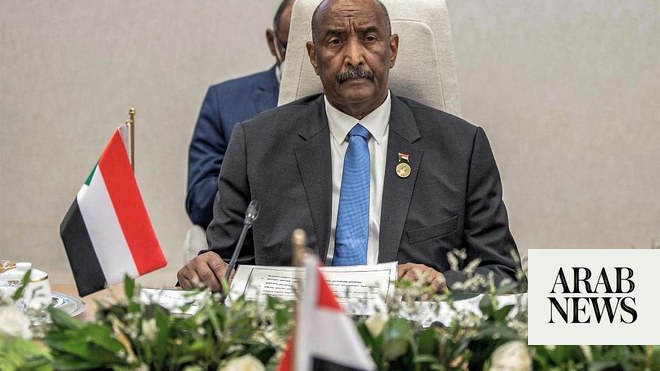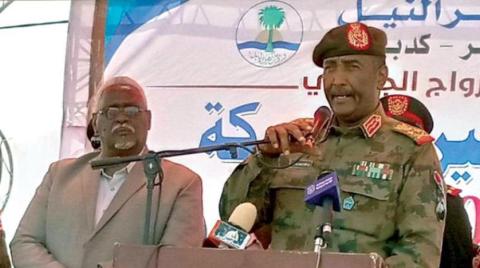
Sudan’s Forces for the Declaration of Freedom and Change opposition movement is seeking to delay the signing of the second and possibly more contentious part of a power-sharing agreement with the countrys military.
It explained that it needed more time to resolve differences among its members over the deal.
"We need more internal consultation to reach a united vision," prominent leader Omar al-Digeir said, adding that no new date had been set for negotiations to resume.
Fellow protest leaders Siddig Youssef and Taha Osman also confirmed the talks had been suspended.
"The Revolutionary Front was present in all talks from the beginning. Its representatives pulled out only from the last two sessions," said Ahmed Rabie, a leader of the FDFC, a broad-based coalition including independent professional unions, traditional political parties and other groups that represent protesters.
"We will try to understand their viewpoint."
The first part of the deal was signed earlier this week, marking a significant step forward amid simmering tensions between the protest movement and the countrys military, which in April ousted longtime president Omar al-Bashir.
The two sides were expected to meet Friday, negotiate and subsequently sign the so-called constitutional declaration that defines how much power each would have in the transitional period until elections are held in Sudan.
Some leaders of the pro-democracy movement flew to Ethiopia on Friday to meet with leaders of the Revolutionary Front, an alliance of rebel groups who are also members of the pro-democracy coalition. The Revolutionary Front had rejected the deal struck with the military arguing it failed to meet their demands for the peace.
"Unfortunately some parties chose not to pay any attention to those issues and went ahead without consulting with their colleagues," Gibril Ibrahim, head of the Sudan Revolutionary Front, told reporters in Addis Ababa.
The Revolutionary Front includes rebel groups from Darfur as well as Blue Nile and South Kordofan states.
Other groups within the pro-democracy coalition had rejected the deal arguing that it came with too many concessions to the generals.
The document signed Wednesday would establish a joint civilian-military sovereign council that would rule Sudan for a little over three years while elections are organized. A military leader will head the 11-member council for the first 21 months, followed by a civilian leader for the next 18.
It marks a significant concession by the protesters, who had demanded an immediate transition to civilian rule. The pro-democracy movement would appoint a Cabinet, and the two sides would agree on a legislative body within three months of the start of the transition.
However, many divisive issues are yet to be discussed in the constitutional document including whether to grant the military a larger legislative and executive mandate as well as immunity from prosecution over the killing of protesters.
"We can never accept the kind of immunity that was proposed," said Rabie, adding that the military council has agreed during recent talks to the FDFC demand to deny anyone full immunity from prosecution.












